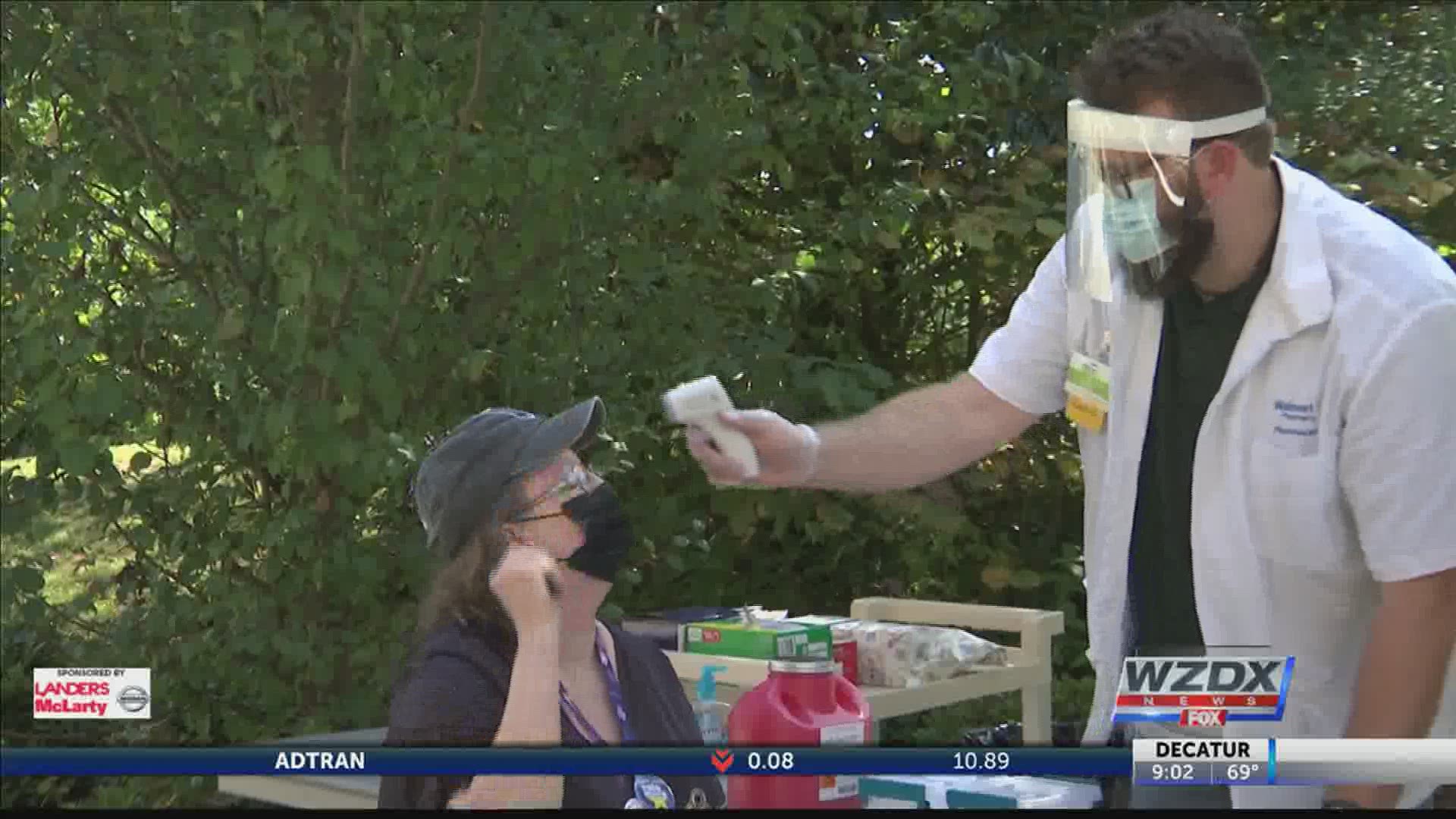HUNTSVILLE, Ala — We’re several months into the pandemic, and we’ve seen a number of strategies pop up to keep us all safe.
When heading into most public spaces during the pandemic, you’ll get your temperature scanned before you enter. But, given the COVID symptoms timeline, how effective are these scans in stopping the spread of COVID-19?
Temperature checks are a great tool. But, the scans could give us a false sense of security if we don't keep watch for other symptoms of coronavirus.
COVID symptoms timeline
Dr. Neha Shah of Thrive Alabama says it’s important to know that checking your temperature shouldn’t be the only source of information you take into consideration if you’re worried you might have coronavirus. Dr. Shah says, “The data is not great on doing temperature checks. I think they’re great to have to catch the few people that might have a fever and didn’t realize they did. But, it’s only one of 14 symptoms of coronavirus.”
Dr. Shah says, lesser known symptoms need to be looked out for as well, and you can keep an eye out for those every day at home. Dr. Shah tells our reporter, “There’s a range… There’s fever, cough, shortness of breath are the main ones we look at. But, you coils have sore throat, body aches, chills, congestion, runny nose, headache, loss of sense of smell or taste, nausea, vomiting, diarrhea or fatigue… So oftentimes, somebody doesn’t even have a fever. They just have nausea and diarrhea and think they just have a stomach bug. But, in all reality, it’s coronavirus.”
Some symptoms can even be more lesser known.
According to Healthline, dermatologists in Lombardy, Italy, monitored 88 people who had tested positive for COVID-19, they found roughly 20 percent actually had skin symptoms like rashes or hives.
What if you have COVID symptoms?
Dr. Shah says if you have any of the symptoms she mentioned, even if they’re mild, think "it’s better to be safe than sorry". She adds, “If you have symptoms like that. Please stay home. If you know you’re going into a place that’s going to be checking your temperature, please don’t rely just on the temperature check to consider yourself safe.”
There’s still so much that’s unknown about the symptoms and impact of coronavirus and the lingering effects it could leave on your health long term.
Wearing a mask and keeping it on securely will help all of us control the spread. Dr. Shah says, “You want to make sure it covers your nose and your mouth. You might have to speak loudly and annunciate more. But, please don't pull it down to speak.”

